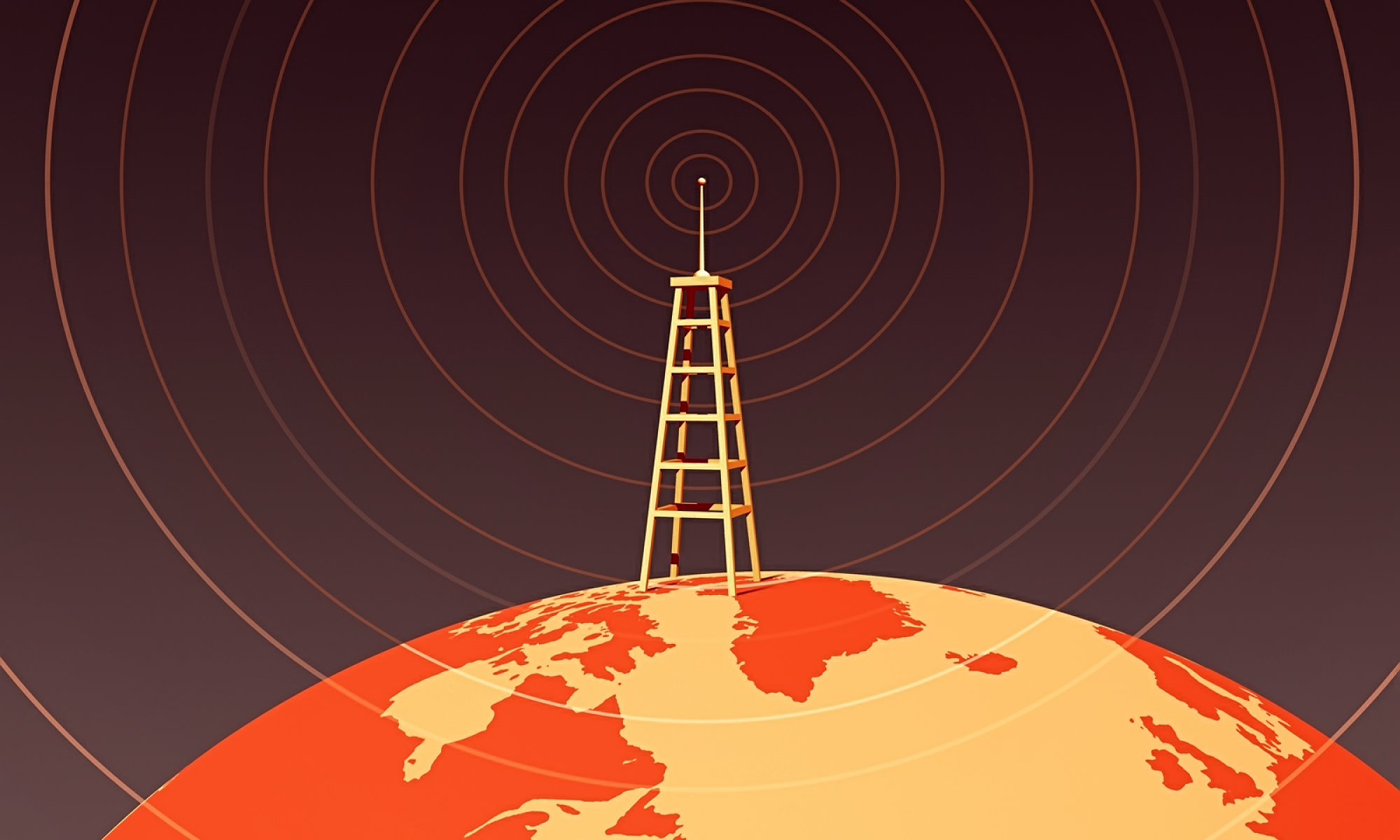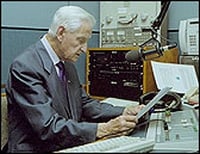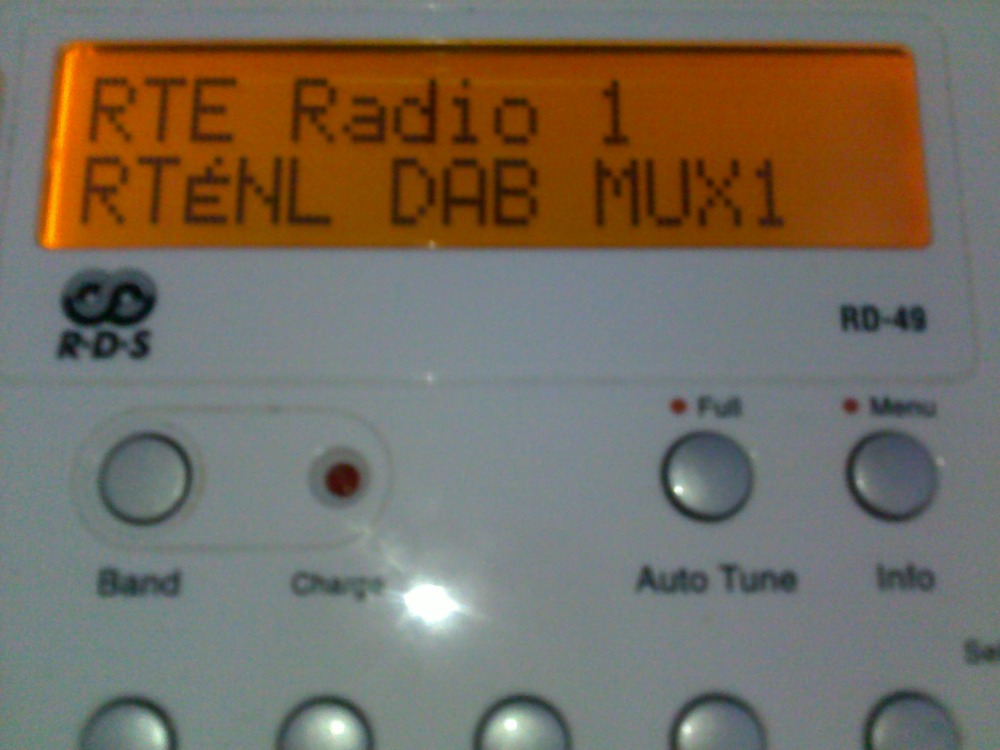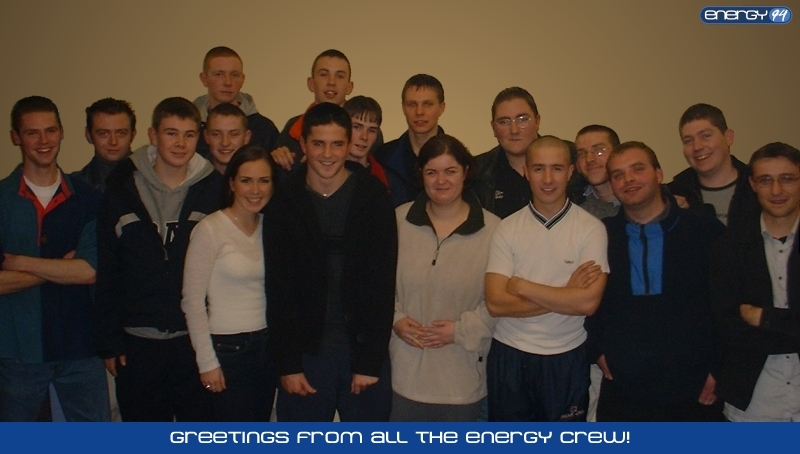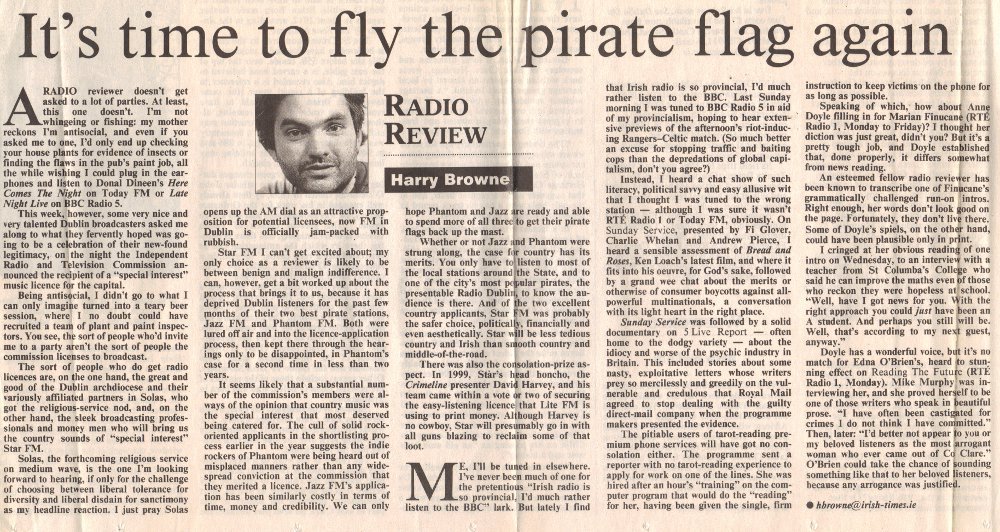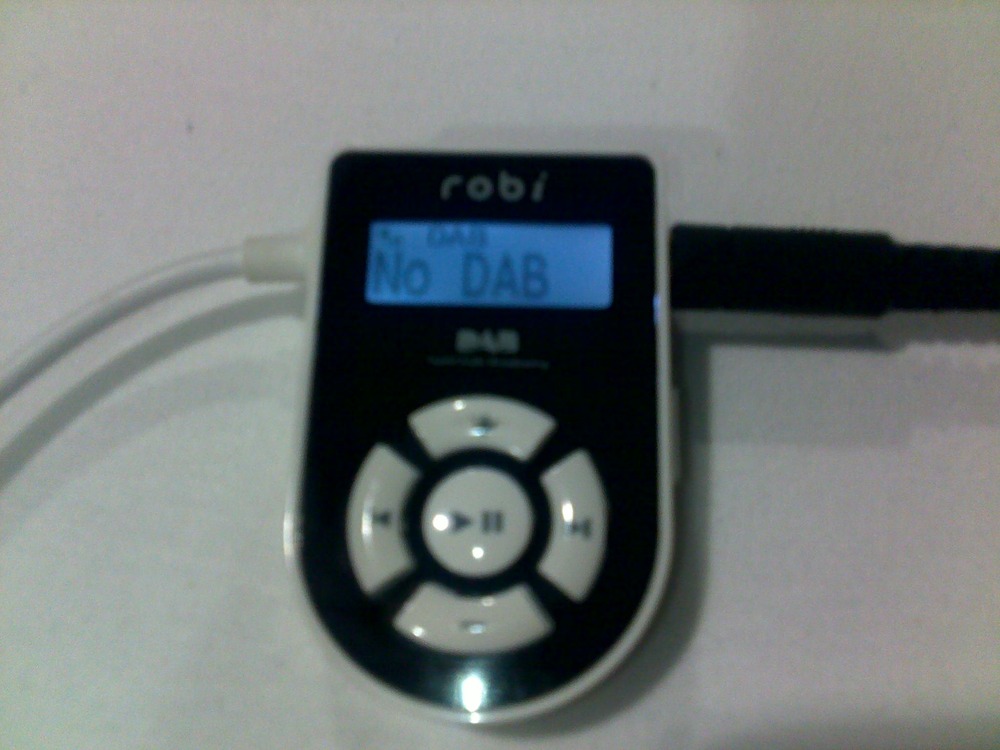
Watching last nights Late Late Show, I was moved by the tributes to the retiring giant of Irish Broadcasting Mícheál Ó Muircheartaigh. Oddly RTÉ decided to treat the story strictly in the GAA realm rather than the realm of his employers business, that being broadcasting (not programme making). There was a tribute from the director general Cathal Goan, but it was this that I found most odd. Ó Muircheartaigh was the voice of GAA on Irish radio RTÉ since the departure on Micheal O’Hehir. Ó Muircheartaigh’s career spanning 51 years, but to claim that this was a career of an RTÉ broadcaster that was in the main something the diaspora and those listening to RTÉ overseas connected with is not the RTÉ overseas story that I know.
Yes you can hear RTÉ overseas but this isn’t part of any RTÉ overseas plan or any government plan to reach the largest active diaspora in the world via the international airwaves, where its anchor content would be the national game GAA, and on radio commentated by the voice of Mícheál Ó Muircheartaigh.
RTÉ don’t broadcast on shortwave. RTÉ listeners overseas go to many lengths to hear the national service but one of these lengths is not the shortwave wavelength. With a large diaspora from famine and economic emigration the state broadcaster has NO shortwave service and never has had any plan to activate one. This Sunday, before Mícheál Ó Muircheartaigh hangs up his microphone on his last senior all Ireland men’s football final it will be broadcast on shortwave like all the All Irelands have been over the past decade and a half. But this shortwave service (mainly to Africa) is not the brainchild of RTÉ, but the conscientious efforts of renegade engineers inside RTÉ who went outside of the state broadcaster to rent shortwave airtime from the BBC / Merlin to get coverage on 2 days in September every year. RTÉ has continued the activity but without a ounce of publicity it generally goes unnoticed.
The Ó Muircheartaigh tones will be well known to diaspora in the UK via mediumwave 567khz a service RTÉ closed down from its Tullamore site in 2008. Reaching homes beyond Cardiff after 4pm (winter) on the alternative 252 LW is a problem. RTE decided to replace the mediumwave because FM was so popular in Ireland and felt that LW would suffice. RTÉ dismal non use / misuse of its LW 252 allocation before the 1980’s and its selling off of the LW to RTL for atlantic 252 demonstrated RTE’s real beliefs of the possibilities of LW. What RTL and TeamTalk252 could not do in the UK with LW 252 neither can RTE. The money that used to fund the Ó Muircheartaigh tones right into London on mediumwave were to be spent on DAB. DAB a 19 year old technology which is still on trial, could get convicted and sentenced to death on Irish radios, RTÉ could replace this investment with DAB+ in the future, so where was the value for money in that spend? But DAB+ should be little compensation to GAA fans not hearing the big game on 567khz on a car radio on the M6 motorway out of Coventry in a country where sports radio wave length is mediumwave with the dominance of BBC Radio 5 live, TalkSport and now Absolute Radio all doing credible sports coverage on AM.
RTÉ online is an excellent way to hear RTÉ if you are tethered to a PC. The realmedia streams should be easy to use on Nokia Internet Radios and Reciva Internet Radios but the common experience is that it is very difficult to get tuned in or stay tuned in to the streams via anything other that a PC. But RTÉ didn’t come to the internet in a rush with open arms. Again it was a bunch of dedicated boffins working outside of RTE via local & worldwide college campus internet comsoc’s that pirated RTE audio to FTP servers to bring radio from home to everywhere. RTÉ To Everywhere was born.
RTÉ bring you GAA on radio via iPhone Apps and to hear Des Bishop speak on last nights Late Late Show about driving through Boston and being tuned to the All Ireland Hurling Final is a joy to behold. Radio goes wireless again, if you have the correct data plan and are the owner of a less than open iPhone from Apple. RTÉ on other Apps may happen but to launch on what is not the worlds most popular phone brand is a bit like Raidio Eireann saying in 1950 that Bush radios could receive the service but not telefunken or pilot radio sets.
RTÉ podcasts are a great way to catch up on shows you have missed. RTÉ started podcasting about one year after it was popularised, and now dominate the Irish market in speech content podcasts. Music & sports content podcasts are lacking and there is a disjointed approach to the delivery of the podcasts where some of the highest paid talent on RTÉ have no or very well hidden podcast content, and many new independently sourced programmes are not available via the broadcaster or at all in podcast format.
The four radio services of RTÉ and Radio 1 Extra are available on satellite DTH but not mobile satellite (like XM in the USA) in Europe on 28east and RTE Radio 1 only on 13 East Hotbird. Small windows of programming are relayed around the world on the World Radio Network.
While this post is dealing with the audio technologies that RTÉ could use to bring the voice of Mícheál Ó Muircheartaigh to the diaspora, we must not forget Television. RTÉ are mandated to provide an international TV service for the diaspora. RTÉ claim inability to fund this service and have failed to provide an international TV service while they encrypt their TV signals on Sky TV in an exclusive deal. GAA has been seen on Irish TV abroad via Tara Television & Setanta Worldwide and now Premiersports TV, while it is welcome that others do it in partnership with RTE it also becomes a stumbling block when RTE need to do it themselves.
The diaspora seem to get the same poor service on radio as they do on TV. RTÉ don’t have a diaspora service vision despite being available worldwide on a patchwork network of services.
It is time to reach the world with our Irish voices. The country that gave the UK Wogan Andrews Byrne has a track record of exporting our best broadcasting talent. If RTÉ wont do it who will? 12 months ago today the The Global Irish Economic Forum met in Farmleigh. What of a broadcasting nature has it provided us in real terms or by way of a plan? Ireland needs an International digital broadcast brand. I favour the plans on Irish Overseas Broadcasting to take back 567khz as a Digital Radio Mondiale service for Europe with shortwave AM/DRM and internet to fill the rest of the globe. What do you think?
